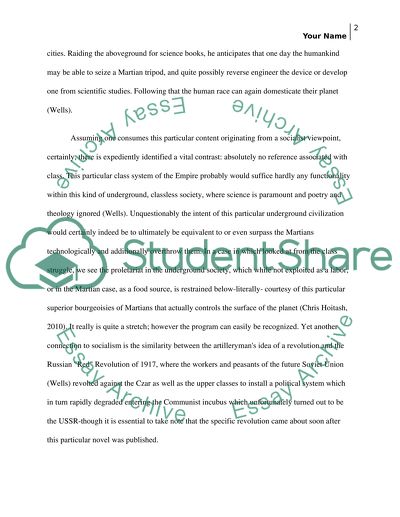Cite this document
(“H. G. Wells. War of the Worlds and Marxist Criticism Essay”, n.d.)
Retrieved de https://studentshare.org/literature/1490862-h-g-wells-war-of-the-worlds-and-marxist-criticism
Retrieved de https://studentshare.org/literature/1490862-h-g-wells-war-of-the-worlds-and-marxist-criticism
(H. G. Wells. War of the Worlds and Marxist Criticism Essay)
https://studentshare.org/literature/1490862-h-g-wells-war-of-the-worlds-and-marxist-criticism.
https://studentshare.org/literature/1490862-h-g-wells-war-of-the-worlds-and-marxist-criticism.
“H. G. Wells. War of the Worlds and Marxist Criticism Essay”, n.d. https://studentshare.org/literature/1490862-h-g-wells-war-of-the-worlds-and-marxist-criticism.


